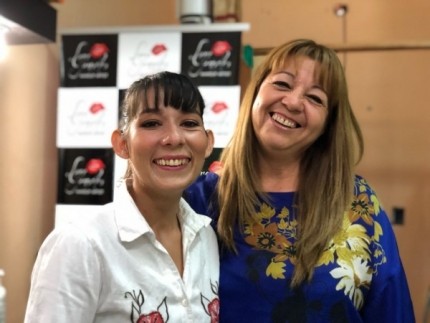
“I struggled to live. I had no money in my wallet.”
Lucia, a resident of Mariano Roque Alonso, is a mother of two, Eladio, 7, and Mia, 6. Her husband lives with her and the kids, but she still carries the burden to provide for her family.
Before she heard about Diaconia, Lucia worked as a manicurist and struggled to make a living. With no money for training, her opportunity for growth was stunted. Her life changed when she heard about Diaconia through her son’s school, where they were promoting free vocational training. Lucia signed up to learn hairdressing and makeup. During her training, her teacher Lorena saw great potential in Lucia and invited her to work at her hair salon.
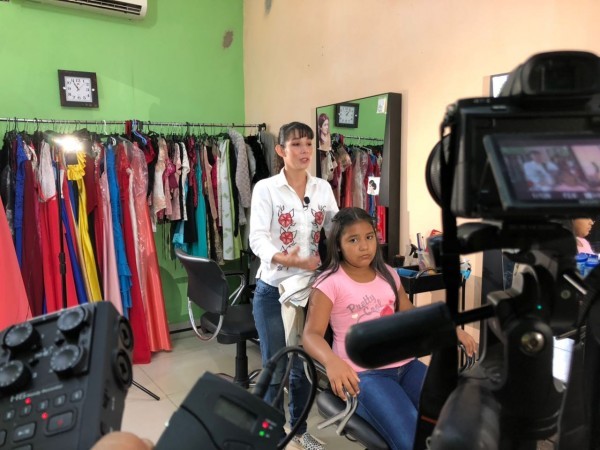
Today, Lucia has her own small business that has been growing and thriving. This past year, she was able to purchase a small car, which has helped her to be more effective in her work. Never did she imagine that she would ever drive a car, when all she could do before was yearn for a safer way to transport her little children.
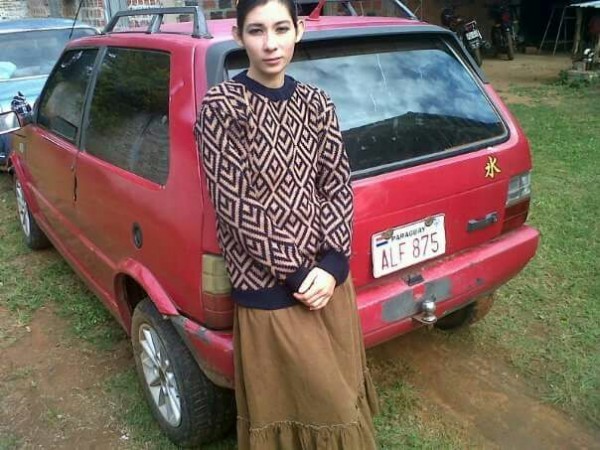
Survival is not the goal for Lucia and her family anymore. While she has a growing client base, she dreams of owning her own hairdressing shop where clients can come to her. “I am so thankful for the opportunities that I have access to thanks to Diaconia. It literally changed me and my family’s lives.”
WANT TO MAKE A DIFFERENCE IN THE LIFE OF A WOMAN LIKE LUCIA?
DONATE NOW!
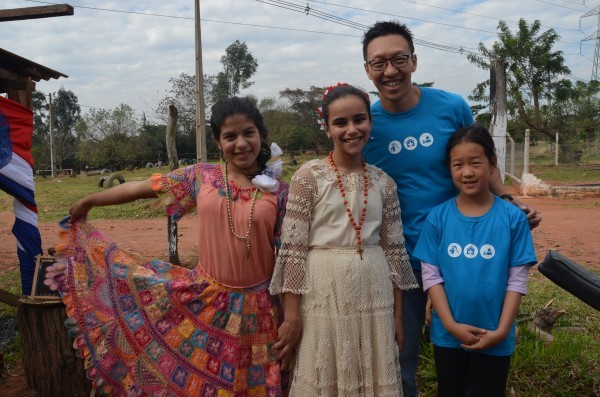
“I never knew that I could make an impact in other people’s lives with the things that God has taught me and prepared me for,” Osmond, from Richmond, B.C., stated after his return from a GAiN LIFE Team trip to Paraguay in July 2017. “I knew in what areas we were going to serve but I didn’t know how God was going to use us, to be perfectly honest. We were just answering the call to go and we were just trusting that God would reveal Himself to us in new and exciting ways – and He really did. He changed my entire perspective on the concept of global missions.”
Typically, mission trips are perceived to have carved out specific roles for volunteers: the doctor, nurse or physician, helping aid and provide care for those without access to proper healthcare; the teacher, carefully loving on the village children and imparting their knowledge; the builder helping build schools, houses or churches. Among those roles, Osmond could not see where he fit in.
“I’m not a healthcare professional. I’m not a teacher. I’m not a structural engineer, I don’t build houses,” said Osmond, whose specific discipline in engineering is in control systems. “I wasn’t really sure how God was going to use me in this particular capacity other than an extra pair of hands. Through this trip, God made me realize that there is a lot of need in the world for the professional skills that I’ve learned over the years and that I’m able to bless a lot of people through that.”

Despite his preconceptions about mission roles and his skill-set, Osmond was able to make a difference in the lives of a group of women in Paraguay. It was his 20-year business experience that was of value to the women at Diaconia, GAiN’s Paraguayan partner.
The majority of impoverished women in Asunción, Paraguay are stuck in a cycle of poverty that traces back to the Paraguayan War in the 1800s, in which the country was defeated, along with the majority of its male population. The devastating consequences of this war still impact Paraguay today.
Osmond learned that post-war, the country’s top priority was re-population, creating a culture where men were encouraged to have multiple partners. This practice stuck around for centuries and has had ill effects on Paraguay’s family structures. It is culturally acceptable for men in this region to not be involved in the family, leaving women as single parents, struggling to get by in an already desperate economy.
That’s where Diaconia, GAiN’s Paraguayan partner, comes in. Diaconia provides micro-loans to women, encouraging them to take vocational classes and start their own businesses. With financial literacy training and other business classes, women in the program have access to education that empowers them to pay off their debts and help them get out of poverty.
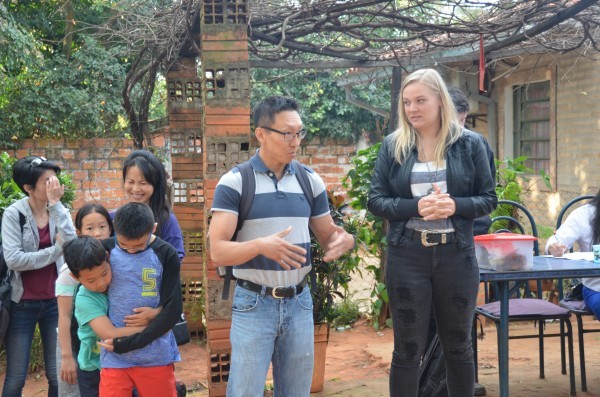
As a business professional, Osmond’s expertise allowed him to do a presentation for Diaconia loan recipients, sharing his knowledge on small business and entrepreneurial best practices and principles. The presentations were restructured to address the unique challenges these women face.
“I would have never guessed that [my business knowledge] would be useful at all, but yet God did a completed 180 on me. I never realized how needed it was because many of these ladies never had the opportunity to learn anything about basic business practices before.”
They finished the workshop with a talk on sustainability and creating a long-term business – something that is a foreign concept to the locals in Asunción, whose immediate concern is day-to-day survival.
“I had a lot of people come up afterward, thanking me for everything that we shared with them,” Osmond recalled. ”We talked [and] we prayed with the women. They seemed so encouraged by that. Seeing that light and that spark in the ladies that were there… Many of them indicated they were excited to be able to go back [to work] and start implementing things they learned from the seminar. They wanted to take advantage of these new ideas presented, that they could see tangible uses for. It was so exciting.”
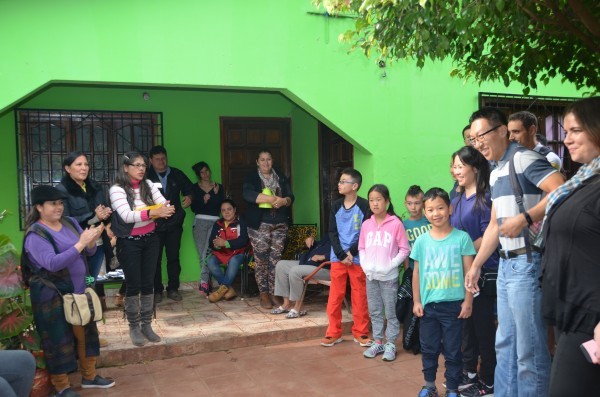
There was story after story of women whose lives had changed because of the program. One, in particular, stood out.
Amalia had a lifelong dream of owning an empanada shop. The shop was initially run from a small tent outside of her home. With the help of the loan, she was able to build a permanent building structure, complete with electricity and plumbing. Customers are welcomed with an awning and the store is furnished with stools.
“She opened the store early [one day] so that we could sample her empanadas. We were glad to purchase them, they were amazing!” Osmond raved.
“[These women] started with nothing and there was no way to break the cycle of poverty without this type of an opportunity. To have a business idea and be able to do something that removes them from the need to scavenge day by day for their basic necessities – it was so inspiring.”
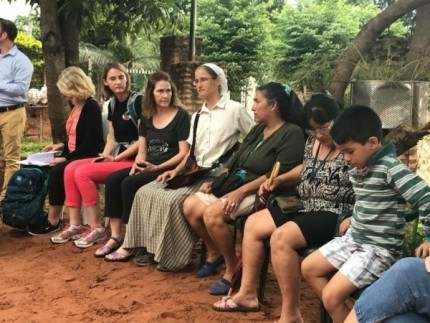
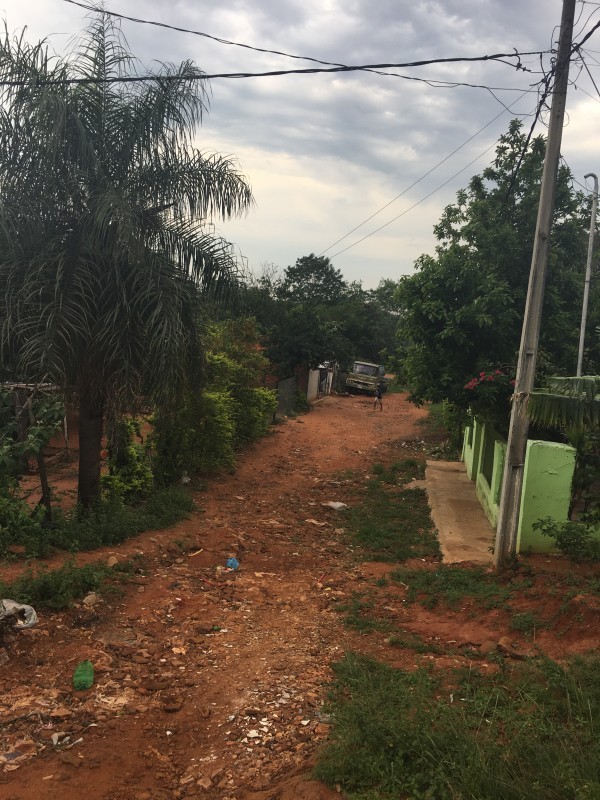
Close your eyes and journey with me as we travel down a dusty, red dirt road in rural South America – a road unmarked and impossible to find to the untrained eye. After half an hour of twisting, turning and bumping along, the road becomes impassible by car and the journey must be continued by foot.
Makeshift households are sparsely scattered, with laundry strung on lines; chickens, pigs, and dogs running around; and residents going about their daily lives. Around a few more corners and we reach a household where 15 ladies gather outside, weekly, in what is known as a Diaconia Trust Group.
Each lady exhibits hope and joy, as she describes her dreams of building a business for herself. The possibilities seem endless: a bakery, a cleaning business, a dressmaker, and even a pizzeria. She dreams this business will bring a better future for her children, as there is likely not a father figure in the household.
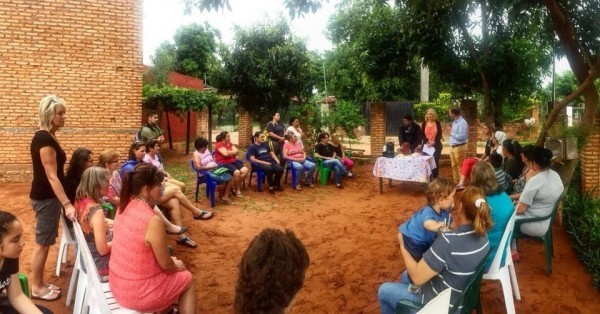
In the first meeting, earlier this year, each lady received a loan equivalent of approximately $30 USD – which will be paid back over the course of 12 weeks.
As the present meeting commences, the appointed group leader starts things off. All 15 ladies are called by name, one at a time, to walk up and make their loan payment in cash, into the cardboard box. A payment is in the range of 15,000 Guaranines ($2.70 USD). The ladies are also required to pay group designed penalties for late payments from previous weeks. The group secretary dutifully makes note of the payments by hand in the book, as the loan steward stands by.
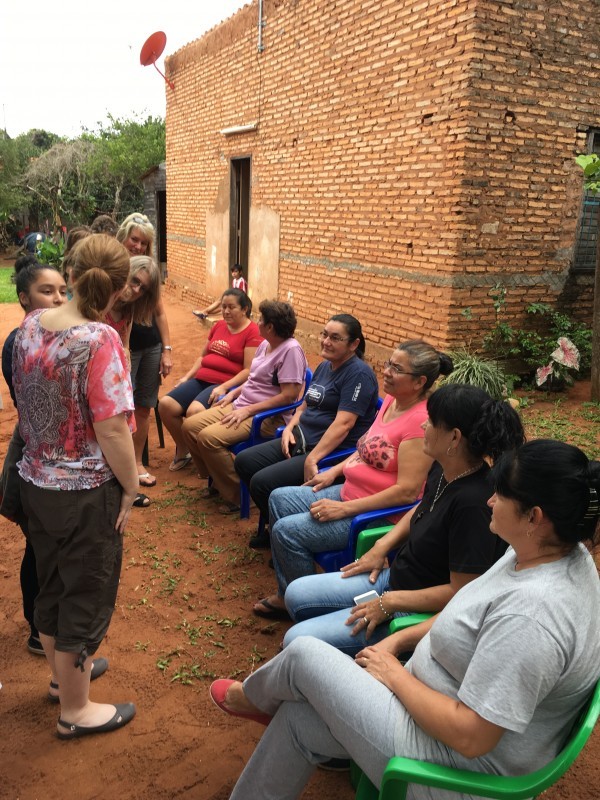
Following this initial round of payment, any ladies who received additional loans from group savings (for special projects) are once again called to the front to make their cash payments, as the secretary takes note.
Once these debts have been paid off, the ladies request any loans from the group savings for special projects. The group then approves these requests and the loans are issued.
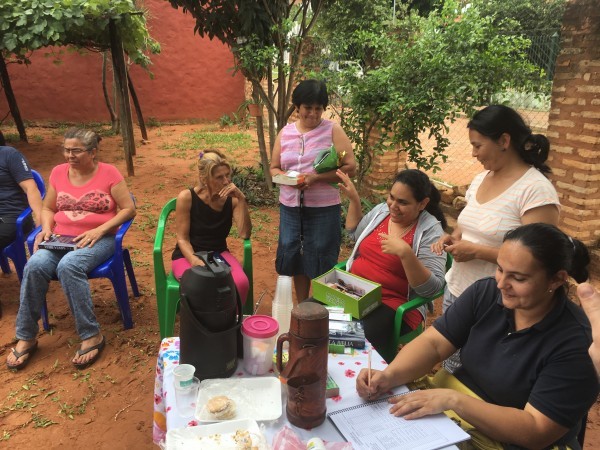
Upon completion of the meeting, each lady returns down the dusty road by foot, as she continues to work hard building her business, and in turn, restoring hope for the future of her family and the future of Paraguay.
Want to help empower women to change the future of Paraguay?

Maria lives in one of the poorer communities of Asuncion, Paraguay.
When our partner, Diaconia, arrived at her house, she warmly invited them in and started to share about her work.
“I heard about Diaconia in a time where I was desperately looking to grow my decorating business. When I started with Diaconia a year ago all I did was curtain decorating. Since I received a loan and training from Diaconia, I have been able to add new products that I now provide as a decorator. This allowed me to grow my business and make a better income for my family. One of the biggest miracles though in this past year is the change that has happened in my sons life,” shares Maria with tears in her eyes.

She expressed that decorating for parties is not only a job for her but she finds joy in her work.
WOULD YOU LIKE TO HELP MORE WOMEN EXPERIENCE THIS SAME FREEDOM, JOY AND INDEPENDENCE?
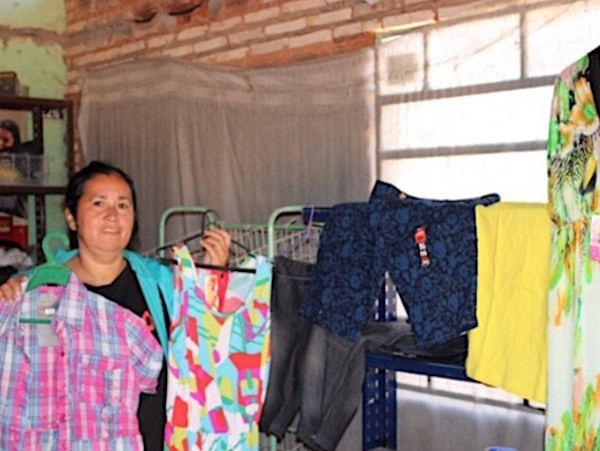
Rufina received an opportunity to create a new life.
As a wife and mother of five, Rufina now had hope that she could provide for her youngest adopted daughter, Anita.
Rufina had always fought to overcome the many obstacles in her life, but it wasn’t until she joined Diaconia, our local partner in Paraguay, that she received an opportunity to move forward.
This is what she shares:
“Two years ago I joined Diaconia with the hopes of growing financially by investing into my clothing store.
We were struggling to put food on the table and were having a difficult time with my daughter.
I was taking medication to sleep at night, which made me very exhausted throughout the day.
I was struggling and my family and friends were worried about me.
It was during this time that a Diaconia chaplain started to work with ou micro-finance Trust Group each week. I began to build a relationship with her and she led me to explained how God loved me. Since the chaplain lived in my community, I would go over to her house whenever I could and we would spend time together.
Today, I am off sleeping pills and my business is thriving.
My daughter’s life is improving as a result of knowing Christ.
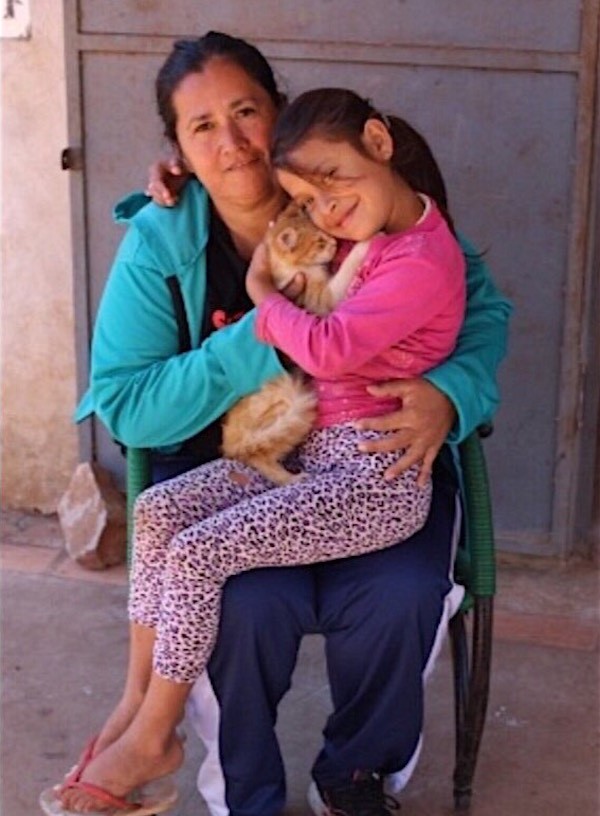
We now attend a local church and I can only say that Diaconia has brought a change into every area of my personal and family life!”
WOULD YOU LIKE TO HELP MORE WOMEN EXPERIENCE THIS SAME FREEDOM, JOY AND INDEPENDENCE?
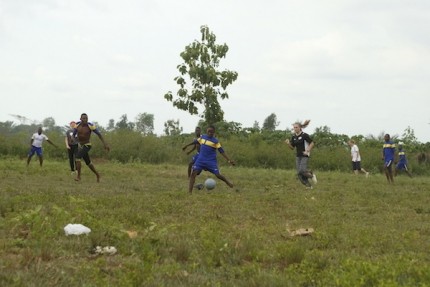
“Sport draws people together and creates community. It’s really neat how just one single soccer ball and an open field can bring people together. You can have a relationship with someone even though you don’t speak the same language.” – Stephanie McDonald, Benin LIFE Team trip co-leader
When sports are used in conjunction with humanitarian work, great things can happen. In May, GAiN partnered with SportAid, a non-profit organization that uses sport as a tool to help impact disadvantaged communities, to organize a trip to Benin with the Trinity Western University women’s soccer team.
The team of 25 women, plus 12 others (coaches, family members and media), flew to Benin expecting an eye-opening and challenging experience.
On their first full day, the team went on a tour of four different villages, seeing the progression of a village without a well to a village with a full-working deep-capped well. They started with seeing firsthand where villagers had to go to get their water — a swamp situated at the bottom of a hill. The sight of a woman gathering dirty water into a basin really impacted the team, many of whom had never left Canada before this trip, bringing the heartbreaking reality of the water crisis right before their eyes.
In the second village, they got to see the well-drilling team at work and ask them questions; while in the third village, they had the chance to witness the flushing of a well. This is a necessary step in the installation process, where dirty water is sprayed from the well before eventually spraying clean water. The transformation from seeing brown and muddy water to clear water was an inspiring sight for the team.
Lastly, they visited a village with a completed well that was in full use.
Some of the team got to help get water for villagers, using the hand pump and carrying water basins on their heads.
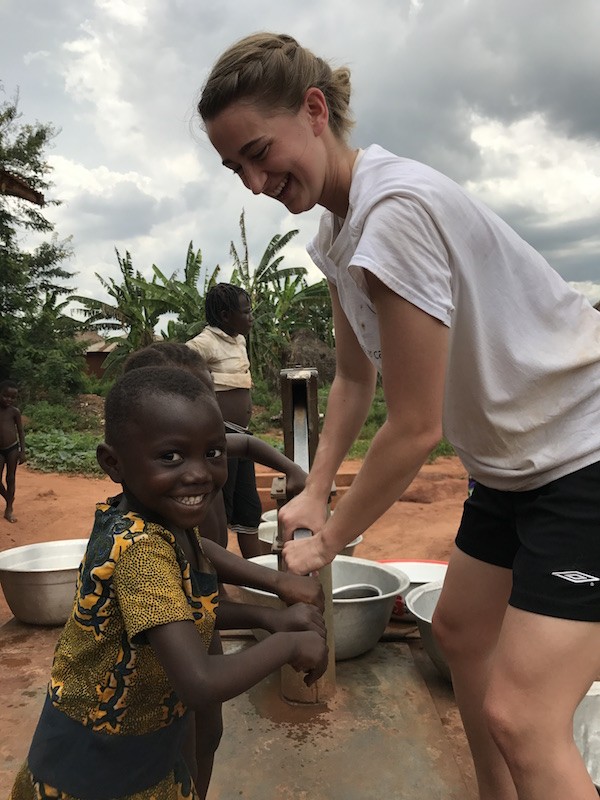
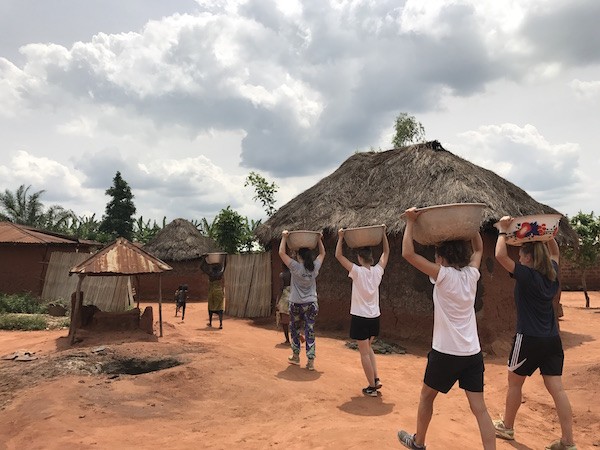
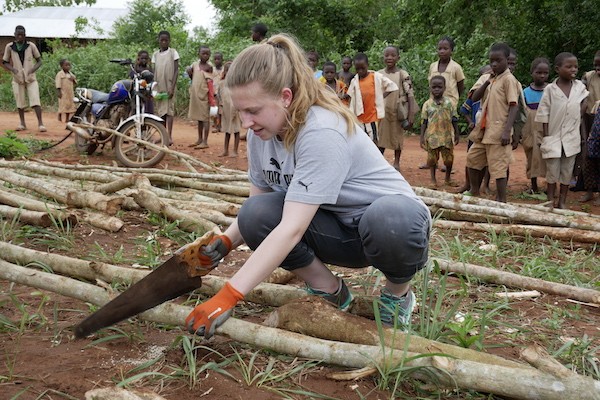
The rest of the trip consisted of soccer games, village chores and construction. The team split up into three groups to build concrete pads for wells and help construct church buildings.
Of course, soccer played a significant role during their time in Benin. The women had a chance to play with the local soccer team (all men), splitting into two mixed teams of women and men, instead of playing against them. Later in the trip, they also played against a local women’s team, further experiencing the power that sport has to break down cultural and language barriers.
“The community speaks the language of soccer even though we have this language barrier,” Brooklyn, one of the team participants, said, recalling a day they played a soccer game outside the house and people gathered around to spectate. “It was so fun to have the community come out and watch us play [even though] they didn’t know us and we couldn’t speak to them.”
It was the relationships that they made with village children that really stuck with the team, McDonald observed.
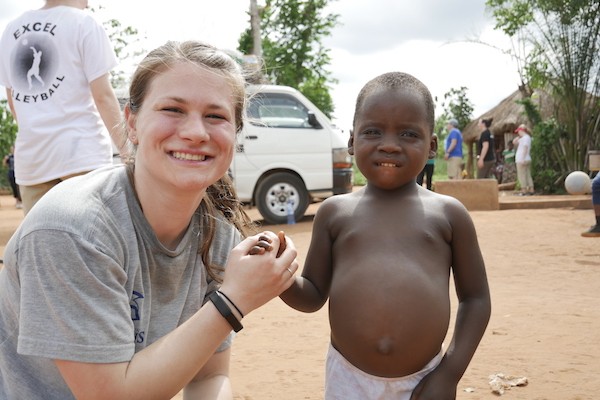
“A highlight with a lot of the women was playing with different kids in the villages and getting to use something that a good portion of their lives is consumed with. Playing soccer can be used to engage and show love to people.”
“It was amazing to see how these kids get such joy out of having a soccer ball,” expressed Brooklyn. “[Something] that brought sheer joy to me was that whenever we brought out a ball, even though there was a language barrier the kids instantly knew we were just playing soccer. [They] split up into two teams.”
The slowed down culture of Africa and the meaningful relationships they made during their short trip inspired the team to be more present in their everyday lives when they returned home.
“They want to make the relationships here, back in Canada, more meaningful through touch and face-to-face,” McDonald explained. “Quite a few women had told me [they] were challenged to bring that aspect back home.”
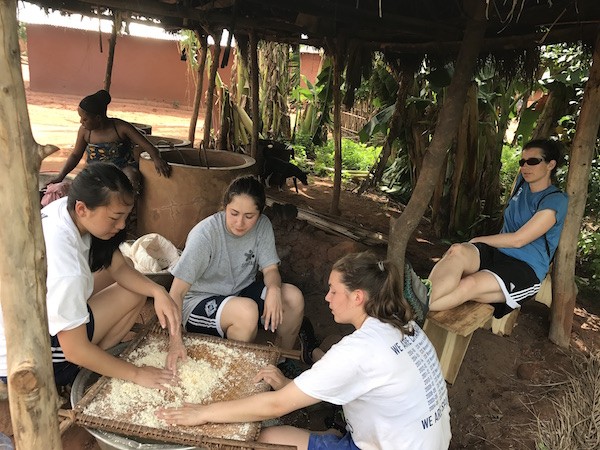
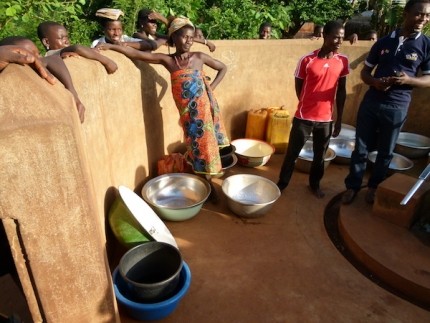
In a village where you have to put chemicals into dirty water to make it drinkable because cleaner water is 15 kilometres away, it is no surprise that providing a deep-capped water well becomes a major event.
That is what happened in Hountakon, Benin.
The entire village came out to watch the installation of a new water source that would provide them with accessible, clean and safe water.
Hountakon’s well was just one of 55 wells that our Water for Life Initiative (WFLI) team visited during their trip to Benin and Togo in April 2016.
Adjaha Vodje, Benin also received a well, which has made a significant physical and spiritual impact on the village.
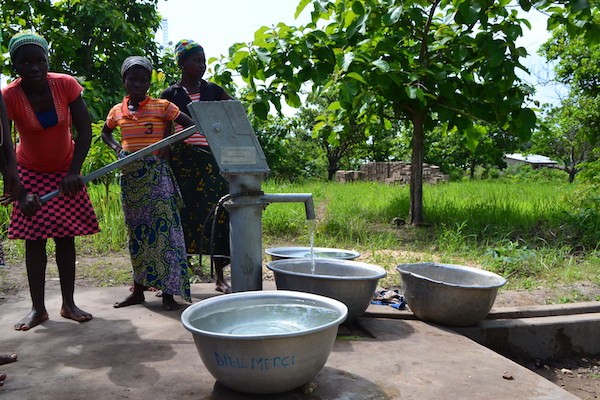
Before the well, people were forced to spend the entire night searching for enough water to fill a bucket. Dry seasons were the worst. Some people would even travel to a city and buy water.
“The need for water is really big and it has been a great tool for us to demonstrate God’s love in the area. The water is really giving true life to every person,” said Pastor Ansel, local pastor. “The presence of the water well in the village has eliminated the fatigue of people and the difficulties that we had to face in the past. I lack words to describe what it means to us!”
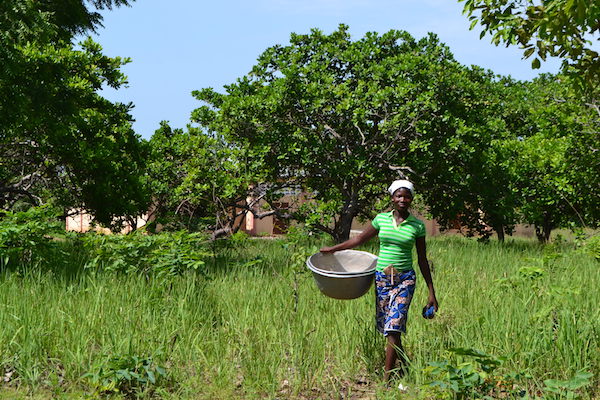
The team noticed that in southern Benin, more villages desire to upgrade their wells to a water tower. In fact, many are getting access to electricity or can rent a generator for 2,000 CFA ($4.40 CAD) per day.
Gbeze-Mouzouhoue, Benin is one of the villages that has upgraded their well by installing an electric pump.
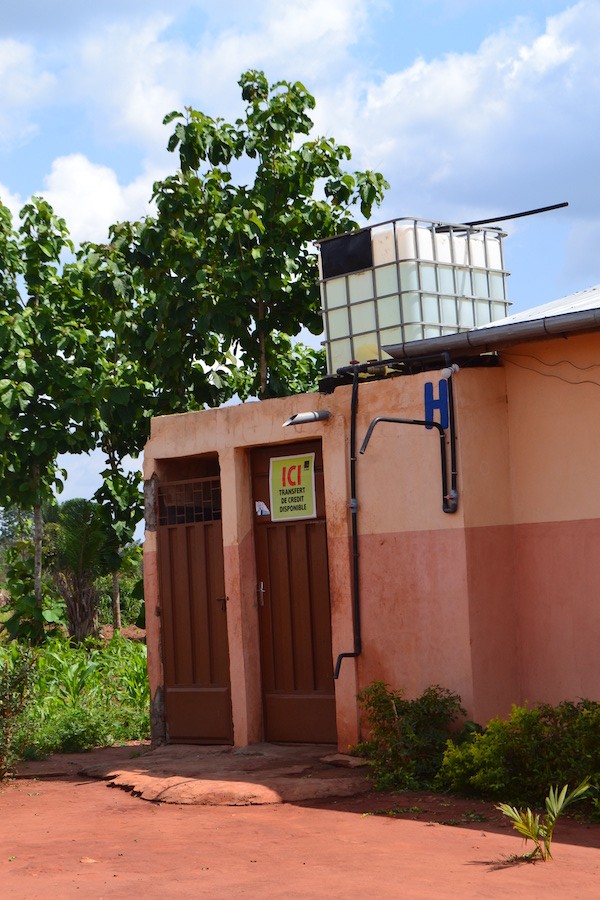
The village used to rely on rain water that was collected in a tank that sat on top of the village clinic. The clean water provided by the well means that the medical clinic can run more efficiently and cleanly.
“When the patient is thirsty, they cannot wait until the water to come from a distance! And it’s so precious for us and it’s really helpful to performing our job well,” the clinic’s head nurse commented. “When you come to a clinic and have no water to wash the body, people just won’t come!”
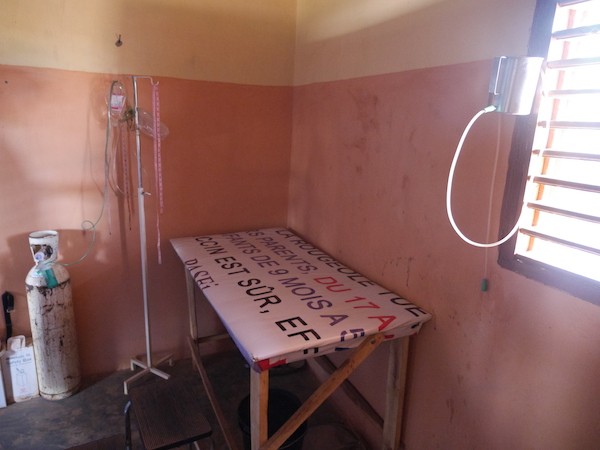
Now that clean water is accessible, villagers no longer have to worry about going 10 km to the next village for unaffordable water. They are able to pay only 25 CFA ($0.05 CAD) per 20L of water, with the money going toward the maintenance of the pump.
Wells are also changing lives in Togo. We provided a well to the village of Zooti Kpota back in August 2015. Since then, the well has continued to provide clean water for the village.
We also partnered with the JESUS Film Church Planting Strategy who partnered with a local church in the village. About eight months later, the local pastor was able to talk about how inspiring the changes have been to the church and its people. Churches have been growing in number and church members have been growing in their faith. He also spoke with great enthusiasm about some of his visions for other projects. One thing he plans to do is start a latrine project in the village for proper hygiene and sanitation.
The positive effects of a water well in a village can be seen quite quickly and with each passing year and the faithful support of our partners, plans will continue to be implemented so that lives are transformed.
WOULD YOU PARTNER WITH US TO HELP IMPACT EVEN MORE COMMUNITIES?
Water is a scarce commodity in the village of Nandili in Southern Tanzania.
Before we provided a deep-capped water well in this village, the people had no option but to travel 18km to find clean and safe water.
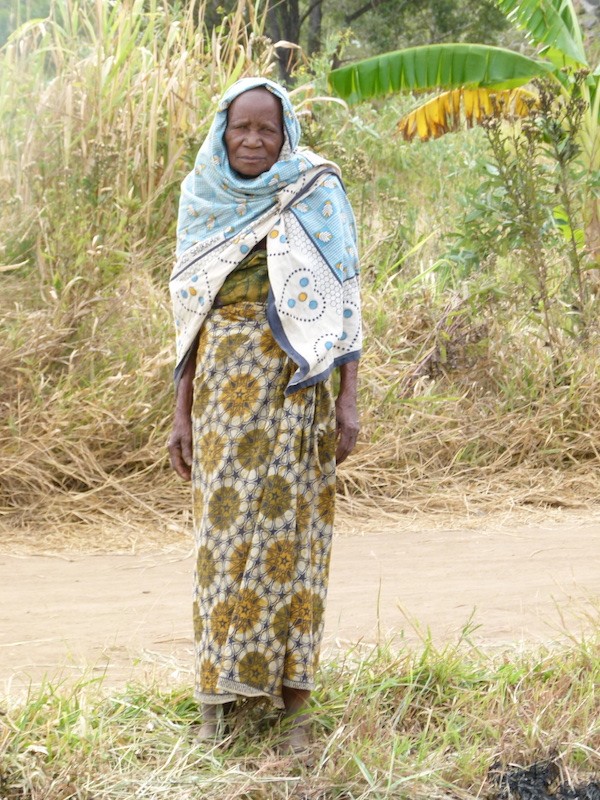
Women used to spend most of their day travelling to collect parasite-ridden water on the back of bicycles.
Fortunately, that has all changed.
Women are now able to stay home and care for their families.
Children are able to have a meal and go to school with clean uniforms. They spend less time fetching water and more time studying.
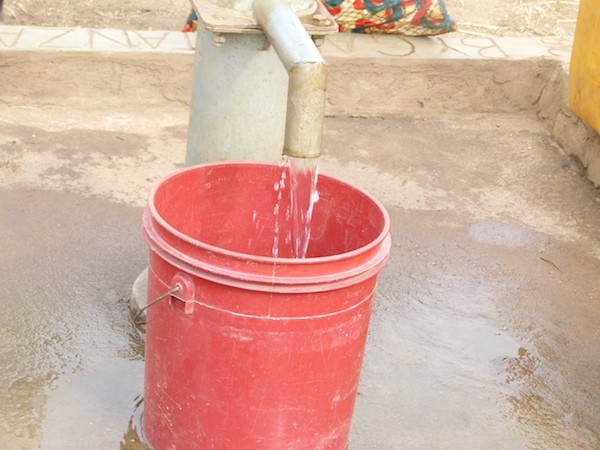
The well is located next to the primary school where the children can fill there jugs as they walk to class.
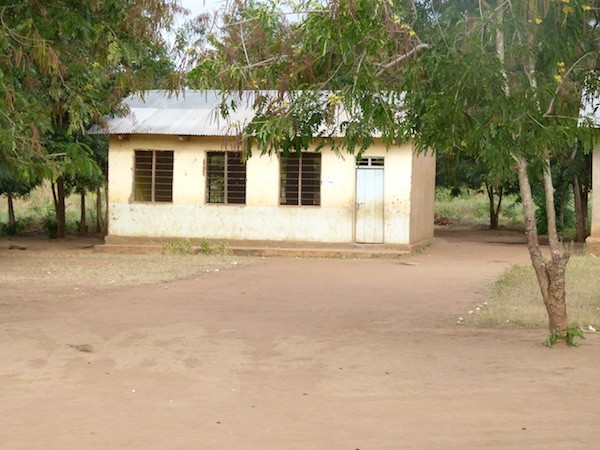
Most of the classes meet outside, which means they can’t study during the rainy season.
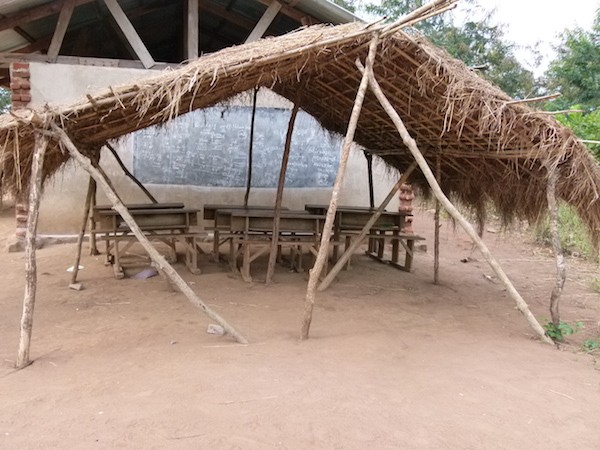
As a result, the village has plans to use the water from the new well to make bricks for new school buildings.
Nandaili’s well brought transformation to the villagers.
Both daily water use and education were radically impacted. Both worked hand-in-hand in providing freedom, safety and hope.
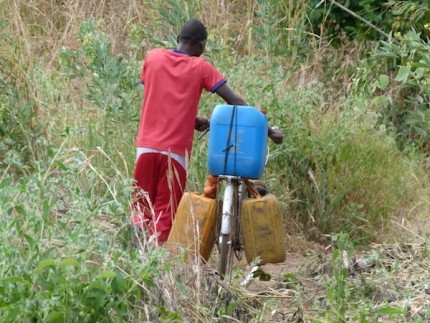
The farming village of Kimawe in Southern Tanzania is surrounded by hills.
As the country enters its dry season, there is an especially great need for clean and safe water in this area.
Villagers travel up to three hours to find water, crossing farmland and over hills for a single bucket of water that wasn’t even clean.
In a desperate attempt to get water, the village gathered the young people and tried to dig to find water. They tried many times but did not succeed.
When GAiN’s Water for Life Initiative came to Kimawe and provided a deep-capped water well in the center of their village, it gave them much more than just clean water.
It gave them more time to spend with their families, to farm and to get an education.
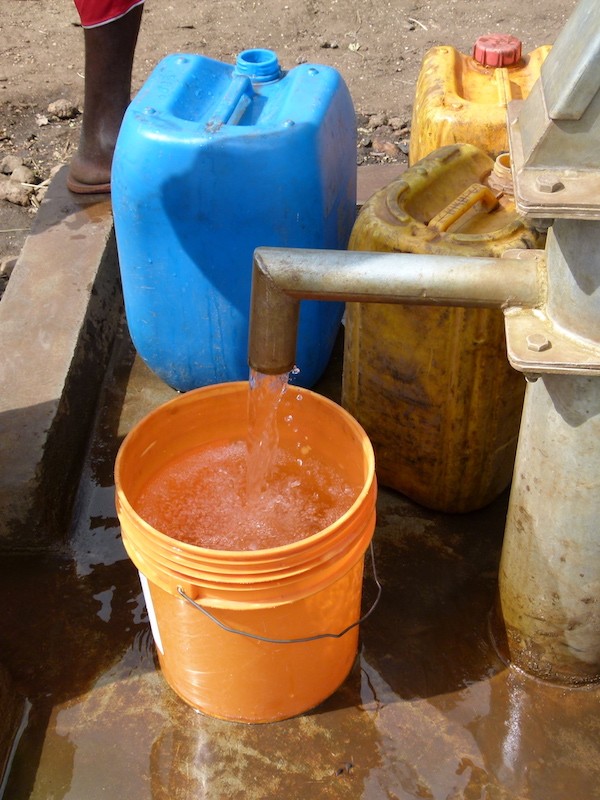
The families of this village benefited greatly from the well because the women were now able to stay home and care for their families and provide meals for their children.
They were grateful for the gift of clean water and AMAZED that the people in Canada would think of them in Southern Tanzania.
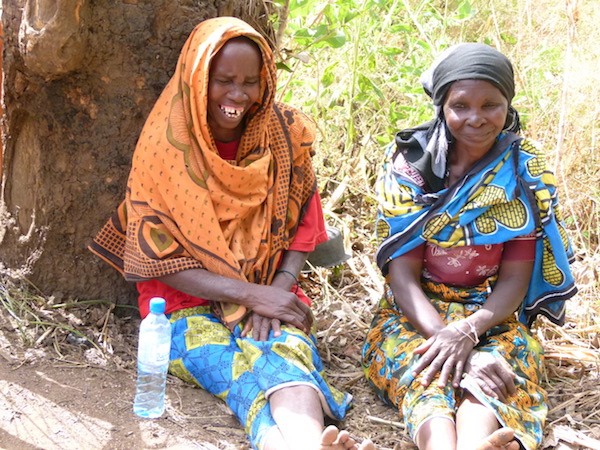
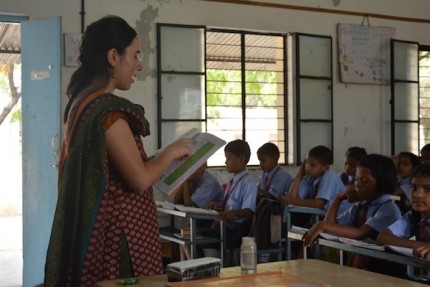
Written by Erika Pettigrew, LIFE Team participant
Money, school, friends, or family? Work, or vacations? Doubt, or fear? Maybe you think you can have the most impact close to home – that serving others short term hurts more than it helps. Maybe you’re scared or you don’t feel ready. You might feel like it’s not the right time. You might not want to go at all. Or maybe you want to go but don’t know where or how.
I’m going to tell you three reasons why you should consider joining a LIFE team this summer and how going on a project has changed my life.
Why you should join a LIFE team?
1. YOU CAN MAKE A DIFFERENCE
I don’t need to tell you that there are people around the world living in extreme poverty. Most of us are aware that hundreds of millions of people are currently suffering from abuse or lack of resources, yet we often don’t know what we can do to help. LIFE teams are a great way for you to get involved in the solution and actively work for change. I decided to participate in the India Summer Project last year because I longed to help women and children who were experiencing injustice. While I was serving at Mukti Mission, I had the opportunity to share hope with fatherless children and destitute women who had experienced terrible suffering. I am thankful that I was able to take part in making a difference, even if it was small.
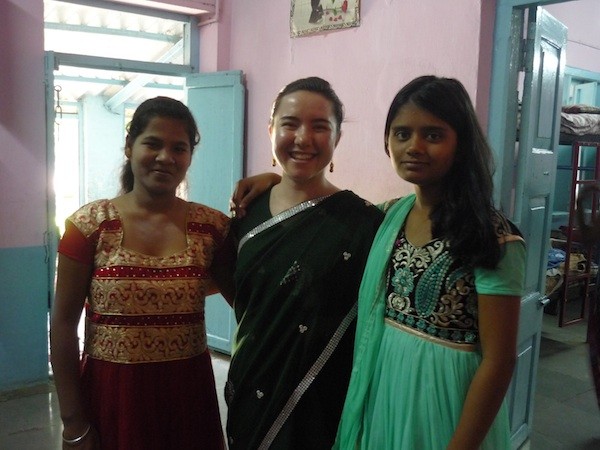
Whether it’s going to Benin to work with the water wells, running summer camps and health training in Haiti, or caring for orphans and widows in India, you have an opportunity right in front of you to help others in need.
2. IT’S WORTH IT, EVEN IF IT’S SHORT
You might be wondering whether it’s worthwhile to travel across the world to do ordinary work that many other people could do.
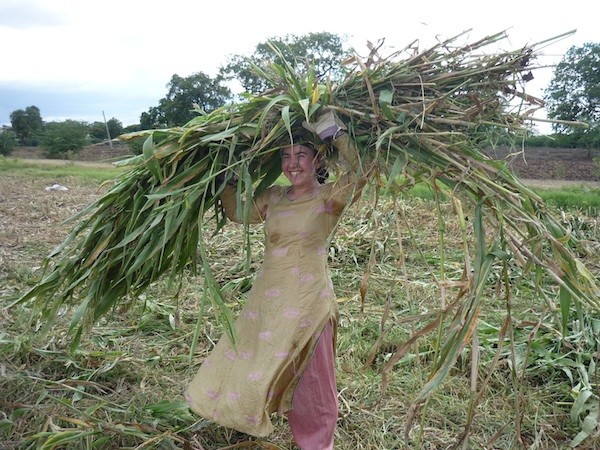
In theory, it does sound inefficient to expend a large amount of resources to accomplish little projects. It seems as though it would be better to just send money to support the local churches that are already established in these countries. But from my personal experience, I’ve realized that local churches long for us to come and visit them.
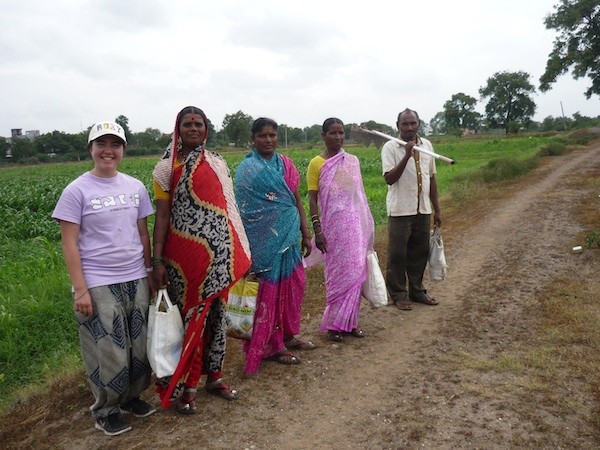
Last year, I met an African pastor who had travelled to Canada to plead for us to go to encourage the church there. When I went to India, I could see how the local workers were so thankful that our team came. During our time at the mission, we were able to serve the workers and give them a much needed break – time when they could be refreshed and poured into so that they could keep working when we left.

Our presence and support encourages churches in a way that no amount of resources ever could. Churches are excited for you to come. In going, we also will be encouraged by learning from church’s amazing faith, which can help us to pour into our church when we return home and serve newcomers coming to Canada.
GAiN has long term projects established where they send LIFE teams, so in joining a project you can help work towards lasting change even if you can only go personally for just a season. These short-term trips can bring joy, hope and transformation in ways we can’t think or imagine.
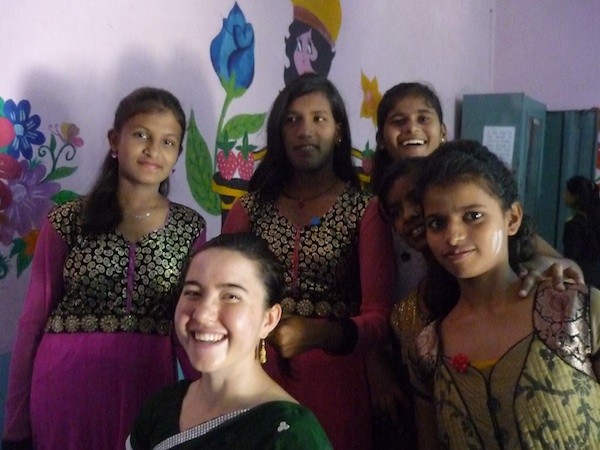
3. YOU CAN USE YOUR SKILLS TO MAKE A DIFFERENCE
There is work out there that only you, with your personality, skills, passions, and experience can do. During my time in India, I was able to teach chemistry, work on a farm, and lead singing and music for a worship service. I was amazed to see how the skills I have could be used to serve others! You, too, have unique gifts and abilities that you can use to make a difference in the lives of those who need it.
I am the person I am today because of the summer projects I have participated in. In the past three years, I have helped with humanitarian projects in rural South Africa, shared God’s message of hope with those living in need in inner-city Toronto, and cared for orphans and widows in India.
My faith has grown through these projects as I have met people with profound faith and hope. I’ve tried to use the gifts God has given me to love and serve others. It is through these experiences that I was able to step out of my comfort zone and grow stronger in my faith.
My heart has been broken by the extreme poverty that I’ve seen, but I’ve also been encouraged as I’ve seen faces light up at hearing messages of hope for the first time. I can’t imagine anything more fulfilling – and so I can’t help but go. I am incredibly excited to travel to India again this summer and continue to develop the relationships I made last summer. I know great things will be done.
I’ve listed some reasons why I think everyone should participate in a GAiN LIFE team, but I understand it’s not always possible for everyone to go. Sometimes it just isn’t the right time, but that doesn’t mean you should give up completely. I wish for you to serve and care for others, wherever you are this summer, but consider joining a LIFE team (especially consider joining me in India)!
